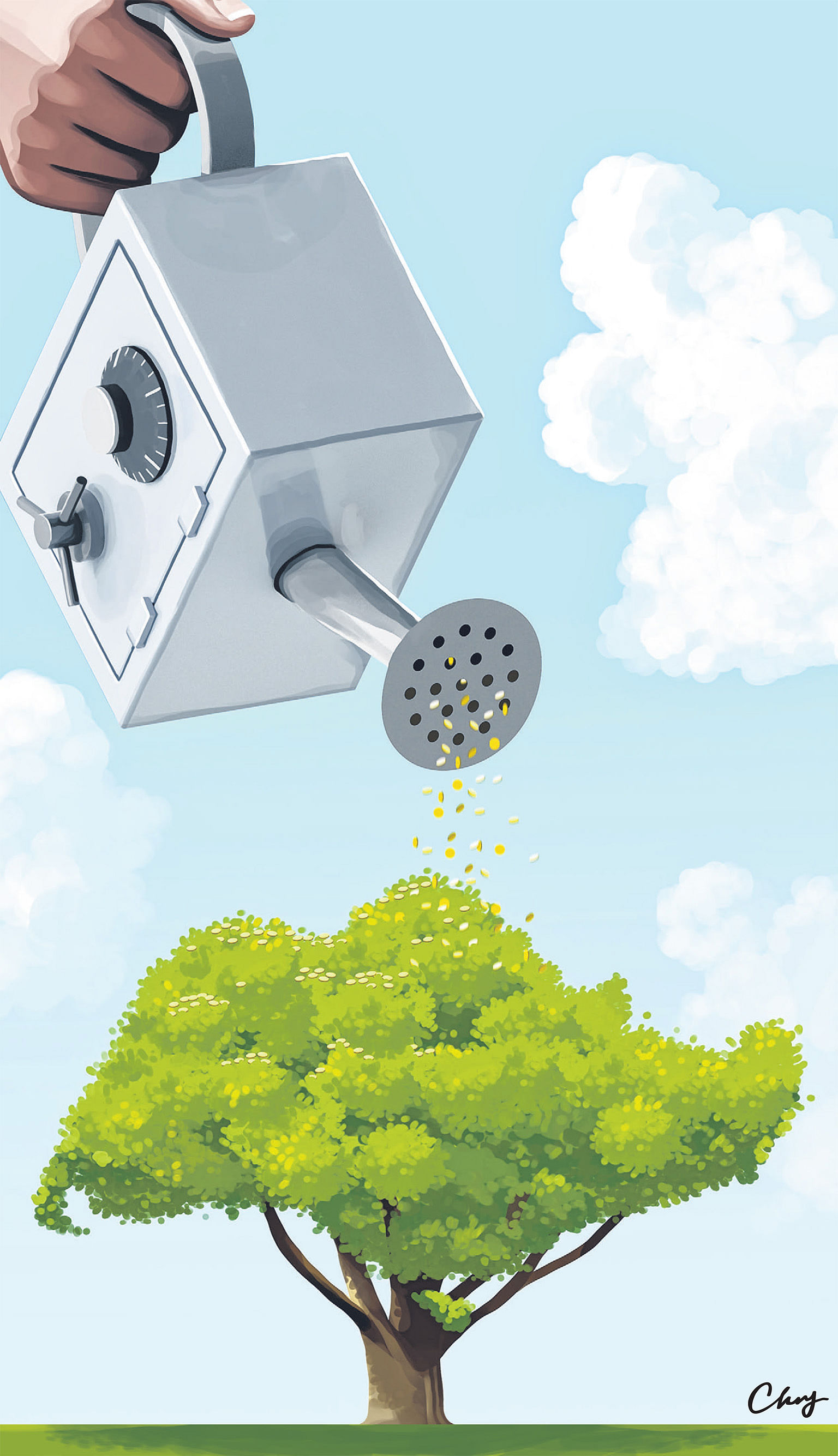I have lost count of the billions of dollars in how-many Budgets with too-many-to-remember schemes to help so many Singaporeans suffering from the pandemic.
In my mind, the parliamentary sittings of the last three months where these matters were discussed have been a blurry series of speeches, adding to the surreal nature of the crisis.
This is not unexpected, as attention has been focused mainly on the disease itself, every day trying to keep tabs on the number of cases and deaths, the numbers discharged from hospitals, and so on.
Now that the virus appears to be under control, and the country reopens in stages, it is time to try to make sense of the unprecedented nature of those financial schemes and their implications.
For the record, the total amount allocated in the four Budgets to deal with the fallout from the pandemic is $93 billion of which $52 billion is from the country's reserves.
These are mind-boggling numbers. By way of comparison, it is more than what the Government has ever spent annually for all its programmes, including defence, education, healthcare and infrastructure development.
Never before in Singapore's history has so much been set aside for one single event, and never before has the Finance Minister gone back to Parliament three times to obtain approval for more funds because the previous allocation was wholly inadequate.
I don't think the full import of this has sunk in. But it is as important to understand the economic fallout and challenges ahead just as it was for everyone to know about the disease and how to stop its spread.
There are several issues that need emphasising.
First, and most obviously, Singapore is fortunate to have amassed sufficient reserves over the years to dip into for the proverbial rainy day.
Other countries too have busted their budgets to provide emergency funds but many of them have had to borrow through the issue of long-term bonds.
The difference is that these will have to be repaid in the future, requiring the government to either cut down on spending, including infrastructural investment, or raise taxes, neither of which you want to do if you could help it.

Not many countries have national savings of the size Singapore has relative to its economy. But the key question which I will return to later is how to take advantage of this in the post-Covid-19 world.
The second point to note is that the bulk of the billions spent was, to put it bluntly, to relieve the suffering from the shutdown that was imposed.
It went mainly to subsidise up to 75 per cent of workers' wages in businesses unable to operate because of the lockdown. Without this support, many companies might have had to fold, leaving thousands of workers out of jobs.
Almost 100,000 self-employed Singaporeans will also receive quarterly payments amounting to $9,000 each.
It is quite a turnaround for the Government which has traditionally shied away from handouts, preferring to spend on infrastructure and what it considers investments for the future such as education and housing, rather than on consumption and welfare.
But in this pandemic, it is the welfare of workers and households that has received the most attention, and for good reason.
Every country faced with the prospect of unemployed millions has adopted similar income support schemes. For welfarist European countries, it is a natural extension of their unemployment benefits.
For Singapore, with no such tradition, it is novel territory. There have been calls in the past for some form of unemployment insurance which the Government has always resisted.
Will this crisis change its aversion to such policies? After all, for an individual thrown out of work, whether in a pandemic or in more normal times, the suffering is the same.
The third issue concerns the use of the reserves. President Halimah Yacob's in-principle approval was sought and granted for past reserves to be used.
The Government's discussions with her and the Council of Presidential Advisers (CPA) are private but I am sure both the President and the CPA took their responsibilities seriously and scrutinised the requests thoroughly.
I hope the story does not end here, though. Approving the use of the reserves is an important task, but it is also equally critical to make sure that it was used for their intended purposes.
Do the elected presidency (EP) and CPA have these monitoring powers? I could not find anything in the Constitution regarding this. But it seems to me that some review has to follow.
If you approve funds for a particular scheme, you should want to know its result, and what action was taken if it did not achieve its objective or fell short.
Perhaps, the responsibility lies with Parliament to do the scrutinising. But it would not be the same as the EP taking on the responsibility, as Parliament is dominated by MPs from the ruling party.
The EP's primary role as a second key safeguarding the country's reserves is intended to prevent a future rogue government from raiding it. To do this job well, it should have some review powers over whether those funds were used for the purposes which it had approved and if they had achieved their objectives.
If it does not have these powers, what is to prevent a future government from obtaining approval to draw down the reserves but not using it prudently, or worse, for some other purpose?
This is a delicate matter because the EP should rightly have only limited discretionary powers, but not having any powers at all to check how the reserves were actually used is not satisfactory either.
In the present allocation, part of the reserves will be used to fund the $350 million enhanced aviation support package to help maintain Singapore's status as an air hub, with national carrier Singapore Airlines as its key player.
This is a worthwhile investment given how important Changi Airport is to the economy.
But it is also incumbent on Singapore Airlines and the airport authority, who are recipients of this help, to use the money well and do whatever it takes to thrive in the post-Covid-19 world.
Do they have innovative plans and a forward-looking management able to do this? It cannot be business as usual for the aviation industry, but who will do the monitoring to make sure the necessary changes are made?
This brings me to my final point about the new normal after the pandemic. You can be sure that it will be a much more competitive world with so many companies in so many affected countries fighting for survival. Success will go to the most energetic, creative and resourceful with the hungriest workers eager to reclaim their jobs.
Singapore had resources to relieve the suffering of workers during the pandemic. But in the new post-Covid-19 world, it will not be enough just to salve the wounds.
To its credit, the Government recognises this and the new National Jobs Council, set up to help create new jobs and skills training, will have its work cut out.
As a reader, Mr Zulkifli Baharudin, who runs an international logistics company, wrote in the Forum page of this newspaper on Monday:
"This cannot be about only retaining our jobs and livelihoods. It is more about remaking ourselves and our society to be as exceptional as those before us... To remain relevant and prosperous, we have to rediscover our own groove, be brave and take risks."
In this new challenge, the size of a country's financial coffers, while useful, will not be the most important.
It will require a different type of reserves comprising human energy, creativity and perseverance. How large of these reserves does Singapore have? It will find out soon enough.
• The writer is also senior fellow at the S. Rajaratnam School of International Studies, Nanyang Technological University.











